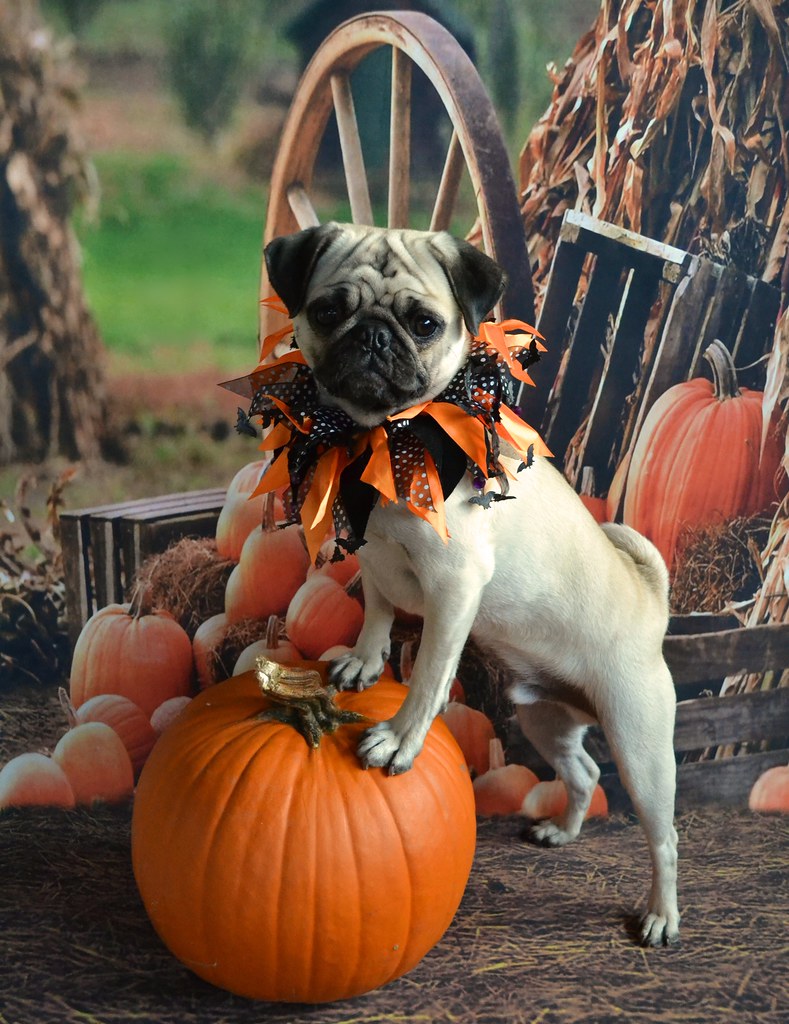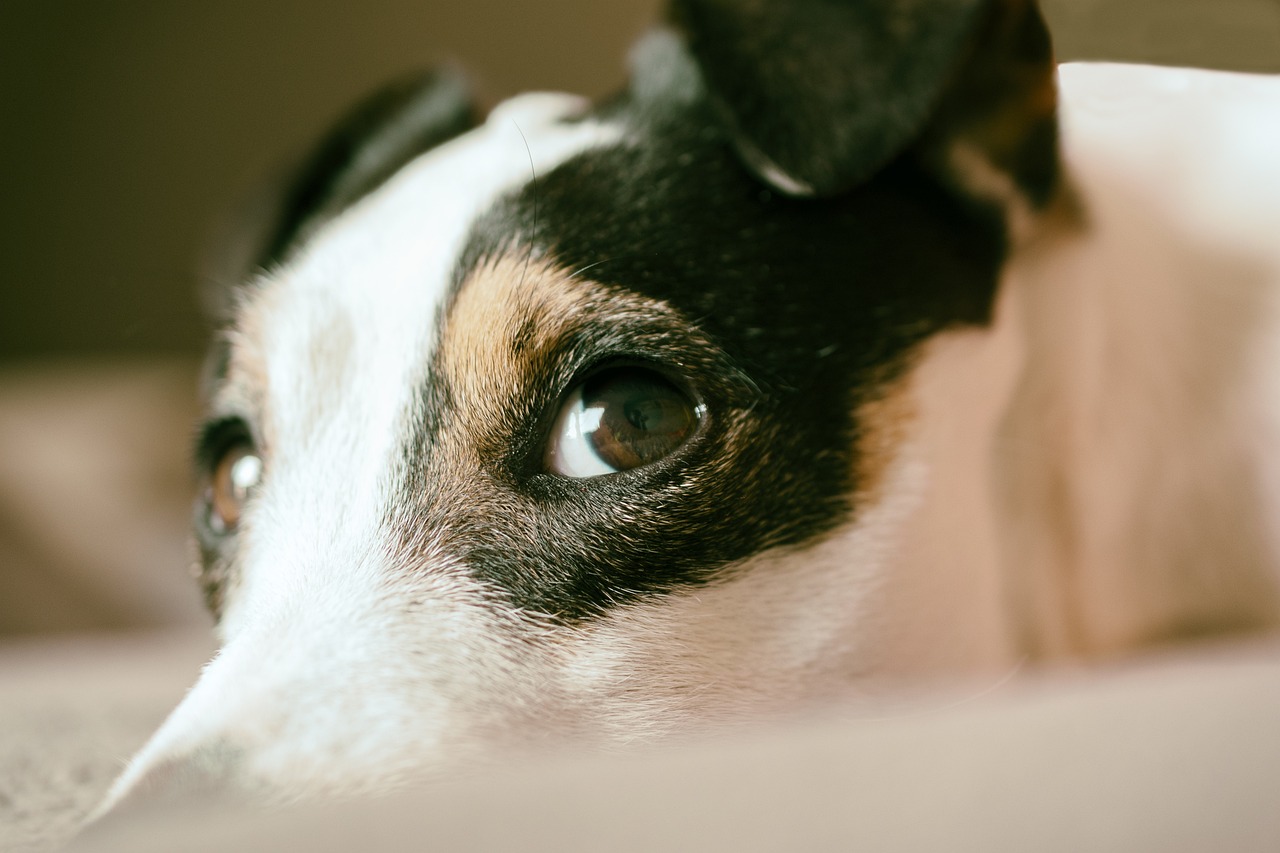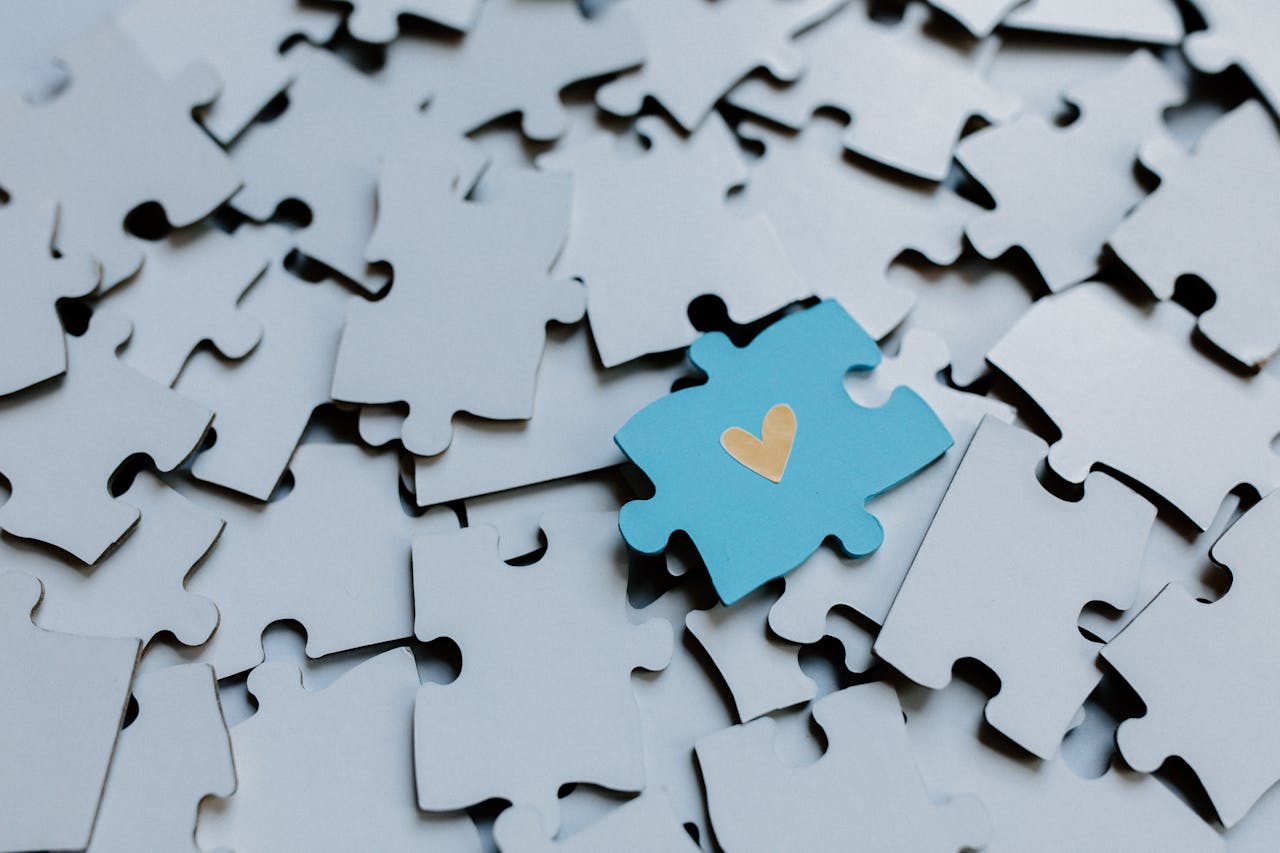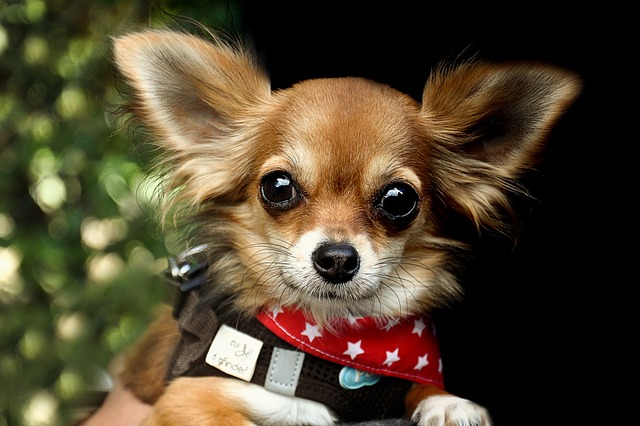
In recent years, the role of service dogs in assisting individuals with physical and/or mental disabilities has gained international recognition and acceptance. Service animals are individually trained dogs, who perform a variety of tasks to help their owners navigate their daily lives with increased independence and confidence. These tasks must be directly related to the owner’s disability.
While larger dog breeds such as the Golden/Labrador Retriever, the German Shepherd, the Border Collie, and the Standard Poodle are typically associated with this role, the representatives of small dog breeds like the Chihuahua, have also proved excellent service animals!
Why not have a small fellow like the Chihuahua as your service dog?
In today’s article, we will explore the capabilities of the Chihuahuas as service animals, address some common misconceptions, and debunk the myths about these little cute canines.
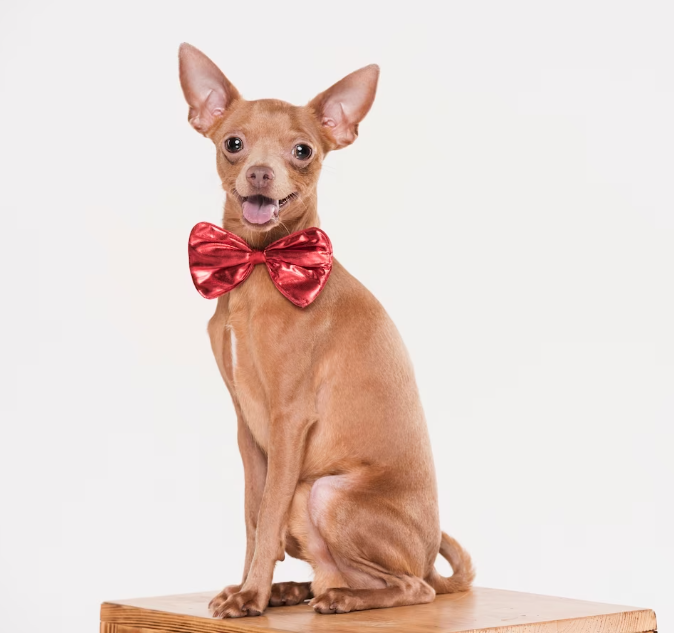
Potential of Chihuahuas
While Chihuahuas may not fit the traditional image of a service dog, due to their small size, this does not automatically mean that they do not have the qualities to become great service dogs!
The dogs of this breed are affectionate, alert, surprisingly courageous despite their small size, devoted to their family, and very playful.
Although they may not be suitable as guard dogs, their great sense of hearing and alertness make them excellent watchdogs.
These little fellows are very adaptive and can live in a variety of environments, from urban apartments to suburban homes.
Because of their size, Chihuahuas are often easier to travel with than larger dogs. They can fit comfortably in carriers and are allowed on many forms of public transportation.
Chihuahuas typically have short coats that require minimal grooming. This can be advantageous for people who prefer dogs with less intensive grooming needs.
With proper training, temperament assessment, and a clear understanding of their limitations, Chihuahuas can serve as valuable service dogs for individuals with certain disabilities.

Service Dog Tasks that Chihuahuas Can Be Trained to Perform
Psychiatric Service Dog Tasks
Chihuahuas can offer not only emotional support and comfort to individuals with mental illnesses such as anxiety, depression, and PTSD but also perform specific tasks for their benefit.
Deep Pressure Therapy is a common task that Psychiatric Service Dogs perform. DPT can be performed in two ways:
-A dog of a small breed like the Chihuahua can jump on their owner’s lap and provide a calming effect using the warmth and weight of their body;
-A dog of a large breed can put their chin on the owner’s lap to provide a calming effect.
Alerting to anxiety is another essential task that a Chihuahua can be taught to perform. There are usually two main methods to do that:
1. You can turn your anxiety episodes into significant events for your dog. This means rewarding your paw friend when anxiety episodes occur, so they start associating the episodes with something very important and positive-treats. Over time, your paw companion will learn to expect treats when an episode is about to happen.
2. You can train your paw friend to recognize specific behaviors you exhibit when you have an episode and respond to them. If you are not sure what these behaviors might be, you can ask your family members for help or just record yourself with a camera. For example, if you tend to scratch your legs when you are about to have an episode, you can train your dog to recognize this behavior and respond accordingly.
Tactile Stimulation in the form of giving a kiss, nose-nudging, or pawing is another important task that a Psychiatric Service Dog can be trained to do, regardless of their size. Tactile stimulation can help bring the owner back to reality if they experience an episode; prevent repetitive and potentially harmful behaviors; and also be used as a type of alerting behavior to oncoming anxiety episodes.
Dogs of small breeds like the Chihuahua can excel in this task and be of great assistance to their owners!
Reminding the owner to take medication can be life-saving. Therefore, many individuals dealing with mental illnesses train their PSDs in this task.
You can teach your little cute doggie to exhibit a specific behavior to remind you to take medication.
Retrieve Tasks
Retrieve tasks can be performed by both Psychiatric Service Dogs and Service Dogs engaged in mobility-related work.
Even small dogs can be trained to bring to their owners certain items, suitable for their size, e.g. medication and phone.
Although Chihuahuas are not as famous retrievers as Labrador/Golden Retrievers, Spaniels, or Jack Russell Terriers, they can be taught this task and actually enjoy it! Do not underestimate your dog because of their size!
Hearing Tasks
As mentioned above, the dogs of the breed are very alert and have a great sense of hearing. If you have impaired hearing and suffer from illnesses such as otosclerosis, tinnitus, presbycusis, noise-induced hearing loss, etc., you might consider training your Chihuahua as your hearing dog!
Hearing dogs, are trained to alert their owners to important sounds in their environment, such as doorbells, alarms, or approaching people.
If your paw friend displays the necessary temperament, intelligence, and willingness to work, then they might have great potential to become excellent hearing dogs.
Medical Alert Tasks
You’ve probably heard of dogs who recognize oncoming seizures, changes in blood pressure, blood sugar, migraine episodes, etc.
Some dogs have the natural ability to detect oncoming medical episodes, which is often related to the strong bond they have with their owners. However, friendly dogs, who are people-oriented, can also learn to perform medical alert tasks, when trained properly.
Your small paw friend of the Chihuahua breed may have the potential to become your medical alert dog, by using their great sense of smell. The more food-motivated your canine is, the better!
Treats are usually utilized as primary positive reinforcement tools to help dogs pair oncoming medical episodes with a reward, thus a positive experience.
If you are considering turning your Chihuahua into a medical alert service dog, then you should prepare cotton swabs or dental rolls that you will have to use to take scent samples during an episode. You will need this so you can pair the smell with a response from your dog that can include different types of behaviors including pawing, nose-nudging, or licking.
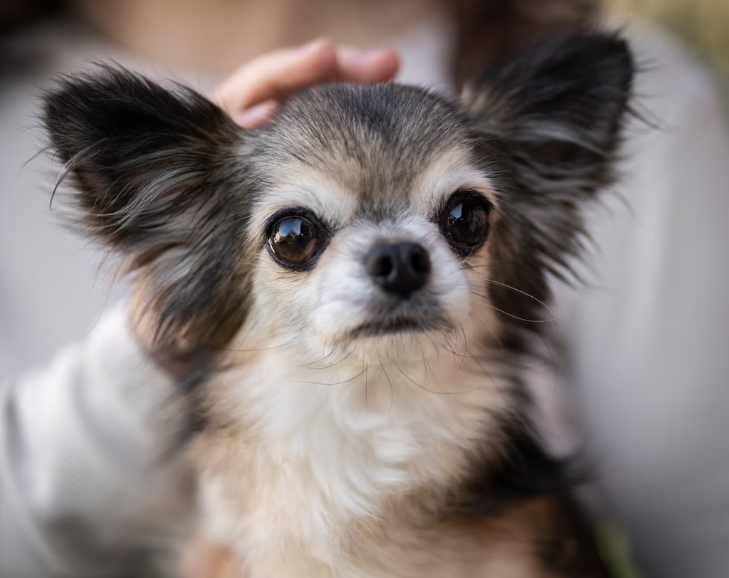
Addressing Misconceptions
There are several misconceptions that contribute to skepticism about Chihuahuas as service dogs. It is crucial to address these misconceptions while considering the potential of these lovely canines.
Size Limitations
A common belief is that Chihuahuas are too small to perform meaningful tasks. While they may not excel in roles that require physical strength such as guide dogs or mobility/balance dogs, their small size can be advantageous in crowded or confined spaces where larger dogs might struggle.
Temperament
Chihuahuas are often stereotyped as a bit yappy or aggressive. However, like any breed, their behavior largely depends on early socialization and proper training. With appropriate socialization and positive reinforcement training, Chihuahuas can exhibit calm and focused behavior.
Training Challenges
Some people may argue that Chihuahuas are harder to train than other dogs due to their alleged stubbornness. While it is true that they can be a bit independent and stubborn, this can be turned into an advantage through innovative training techniques that cater to their unique personalities.
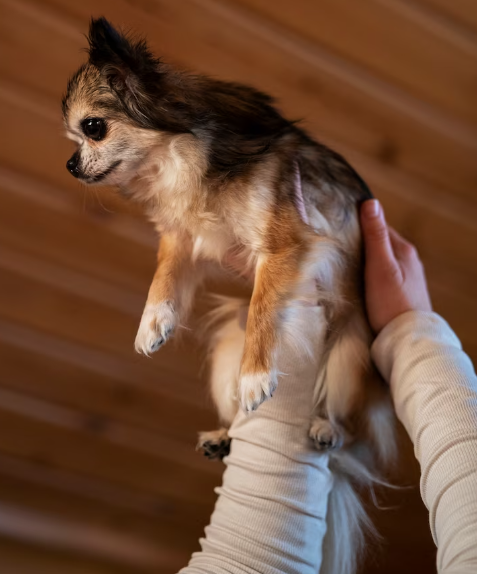
Training Considerations
Training a Chihuahua as a service dog requires dedication, patience, and an understanding of their individual strengths and limitations.
Chihuahuas have different physical and behavioral characteristics compared to larger breeds. You should apply training approaches tailored to their specific needs and abilities. Tasks that emphasize their sensory abilities, alertness, and agility might be very suitable.
To avoid any behavioral issues that may be developed in the future due to stress and fear, you should socialize your Chihuahua from a young age. This will help them build confidence and learn appropriate behaviors in various environments. Gradually exposing your small fellow to different environments, people and sounds will help desensitize negative reactions to stimuli.
Chihuahuas respond well to positive reinforcement techniques. Consistent rewards for showing the wanted behaviors will contribute to developing a strong bond between you and your paw family member. It will also encourage your doggo to perform the wanted tasks reliably.


